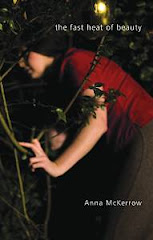'Music of Gounod - a Thought Form', from Annie Besant and
Charles Leadbeater, Thought Forms (1901).
Blurb as follows:
| Founded in 1875 in New York, the Theosophical Society quickly went global,
attracting a cosmopolitan community of adherents worldwide. Often treated as a
footnote in modern cultural history, there has been very little research about
why this esoteric organisation was so popular with artists, musicians and
writers in this period and, furthermore, what impact it had on their artistic
endeavours. The Enchanted Modernities International Network will bring
together scholars who are experts in the visual arts, music and sound, and
literature from all over the world to explore what the visual, material and
performing arts can tell us about the relationships between theosophy, modernity
and mysticism c. 1875-1960. The research carried out by the Network’s partners
will examine where and how artists, writers and performers came into contact
with theosophy and other mystical practices, and how theosophical ideas,
especially those of key figures in the society in this period – such as Helena
Blavatsky and Annie Besant – were given material, visual and audible form and
shape. As well as a series of academic conferences and workshops in Amsterdam and New York, the Network’s research will be made available to international audiences through two exhibitions, a series of musical performances and a website. |
|||
| One of the exhibitions will use the incredibly rich collections of the Nora Eccles Harrison Museum which is based at Utah State University, a partner institution in this Network, to explore the impact of theosophy on modern art from the West Coast of the United States. | |||
A primary aim of the Network is to make academic research on theosophy and mysticism more publicly available and we will also be displaying our research at the Borthwick Institute for Archives at the University of York using the papers of two prominent theosophists in Britain, the composer John Foulds, and his wife, the violinist and writer, Maud MacCarthy, who were both interested in Indian music. Foulds composed a World Requiem after the First World War to honour the dead of all nations and the display at the Borthwick (opening in February 2014) will look at theosophy, internationalism and the arts in the early twentieth century. The Fry Street Quartet, based at Utah State University, will travel to partner institutions in the Network, including Nottingham, Cardiff, Columbia (New York) and York, to perform a recital of theosophically-inspired music, including works by Foulds. Other activities include a visit for the Network’s partners to the important Library at the Theosophical Society’s International Headquarters in Adyar (Chennai) in India where we plan to hold a public seminar about the Network’s research and a final conference at Columbia University New York. The Trust’s funding will allow us to explore the international reach of theosophical ideas across various disciplines and media. ----------------- Should you fancy an incredibly dense and long winded read, Madame Blavatsky's Theosophist classic text The Secret Doctrine can be found here. For more info on Helena Blavatsky and her seminal texts, good old Wikipedia has a good intro. | |||







No comments:
Post a Comment